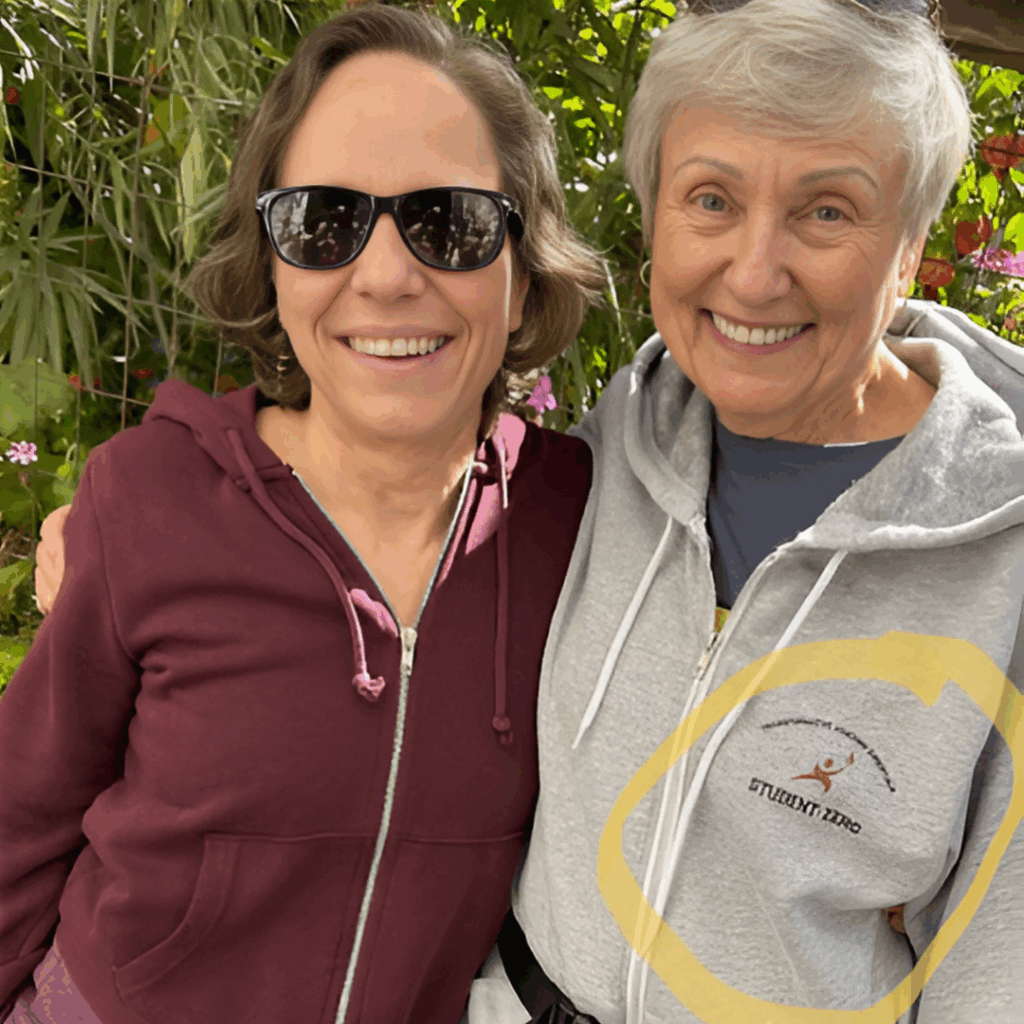When I first trained to become a coach, I had no idea that one day I’d be training other coaches. I simply followed a calling — to listen more deeply, to support people in discovering their own power, and to have conversations that truly mattered. Over time, that calling evolved. The work grew deeper, my skills sharpened, and eventually, a new invitation appeared: to help others become coaches themselves.
(Side note: I did not just spontaneously decide to start training coaches. It’s a way better story than that and if you know me, you’ve heard it! Instagram – Student Zero)
The journey from coach to trainer is not a straight line. It’s a spiral — always circling back to the basics with a more refined perspective. It never ends, this journey of awareness. It requires continual awareness of my mindset, taking a broader view, and an even deeper commitment to the work, which always starts with the work I do on me.
From Doing the Work to Holding the Container
A coach’s primary focus is on their client — creating safety, asking powerful questions, listening for what’s not being said. As a trainer, we still do all of that… but at scale. A trainer is holding space not just for one person’s process, but for a whole room full of developing coaches — each on their own journey, each learning at their own pace, each bringing their own stories, doubts, and dreams into the space.
The opportunity is not just to model effective coaching, but also to articulate why it works. That means developing not only intuition, but also the capacity to teach, translate, and trust. I learn more about coaching and what it means every time I walk into the training room, every time I have a call with a student, every time I offer feedback on a coaching session.
What Skills Are Needed to Become a Trainer?
Some of the most important skills I got to develop in order to become a trainer weren’t technical — they were relational and energetic. (And many I have learned along the way!) Here are a few that stand out:
- Presence: The ability to hold a room — not by performing, but by being grounded, clear, available and vulnerable.
- Clarity: Teaching requires breaking down complex processes into learnable chunks, without losing the magic. This is an ongoing process of learning for me!
- Compassionate Directness: A coach trainer must be able to offer feedback that is honest and actionable, but never judgmental (just like a coach!).
- Discernment: When do you let a student figure it out for themselves, and when do you step in? This is often one of the biggest challenges for me personally, and it is a dance!
- Curiosity: Just like coaching, training is not about having all the answers — it’s about creating the conditions for exploration and learning.
What I Wish New Coaches Knew
If you’re early in your coaching journey, here’s what I’d want you to know:
- You don’t have to be perfect. In fact, trying to be perfect will block your growth.
- Your presence is more powerful than your technique.
- Mastery doesn’t come from knowing more — it comes from being more curious, more spacious, and more willing to practice.
- Every coach was once a beginner. What matters is your willingness to stay in the game.
For Aspiring Trainers
I personally believe that it is very valuable for coaches to be trainers – you can lead workshops on communication, accountability, building trust and any other tools that you are trained in. If you’re a coach who feels the nudge toward training others, start here:
- Deepen your practice. Mastery of the basics is essential.
- Observe other trainers. Watch how they teach, facilitate, correct, and encourage.
- Ask for mentorship. You don’t have to walk the path alone.
- Practice teaching. Start small — lead a discussion, give a talk, offer a mini-training.
- Ask for feedback: When you do trainings, ask the group for feedback – what were the most and least valuable aspects of the training? What did they like about you as a trainer? And ideally have another trainer present to offer mentorship feedback.
- Cultivate patience. Training requires you to slow down, step back, and let people find their own way — even when you know the shortcut.
Final Thoughts
Becoming a trainer is one of the most challenging and rewarding evolutions of my professional life. It’s stretched me as a coach, as a communicator, and as a human being. I’ve had the privilege of witnessing many people step into their power as coaches — and there’s nothing like that.
If you feel the call to step from coach to trainer, know that it’s not a linear climb — it’s an invitation to a deeper level of service, mastery, transformation and humility. And like all powerful journeys, it starts with the decision to say yes.







